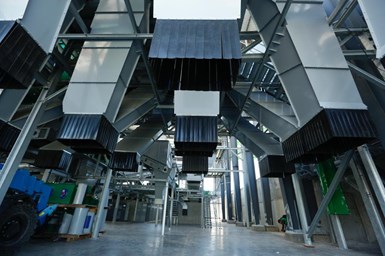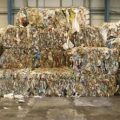The Azcapotzal Transfer Station and Sorting Plant has officially become the largest and most modern in Latin America. Last July it was officially inaugurated in Mexico City (CDMX), making it the first automatic plant for the separation and treatment of solid urban waste acquired directly by a government at a national level in order to move towards the correct treatment of urban waste based on the concept of circular economy.
The company Stadler has provided the key technology to achieve this milestone. “We would like to thank Mexico City for allowing us to contribute and participate in the great challenge of waste reduction in Mexico City, one of the most populated megacities in the world, where more than 12,000 tons of waste are generated every day” says Natalya Duarte, Stadler’s Sales Director for Mexico.
This plant is the Mexican government’s first automated plant for the separation and treatment of municipal solid waste (MSW). The 11,000 square meter facility sorts mixed paper, old corrugated containers (OCC), multilayer packaging, polyethylene terephthalate (PET), high density polyethylene (HDPE), plastic bags, film, aluminum cans, metallized bags, textiles, glass and other scrap metal.
Innovative sorting technology provided by Stadler has enabled the plant to switch from a manual sorting process to an automatic process to ensure greater material recovery efficiency and purity. The new facility has automatic sprinklers that capture odor particles during operating hours, an intelligent system of misting points to apply bactericide and aromatizer, and roofs designed to prevent the dispersion of waste and acoustic insulation that prevents the propagation of noise.
The plant operates in conjunction with a transfer station that processes about 1,000 tons per day of scrap metal from the municipalities of Cuauhtémoc, Gustavo A. Madero, Miguel Hidalgo and Azcapotzalco, and will be able to receive up to 1,400 tons of scrap metal per day. The facility has generated 404 direct jobs.












